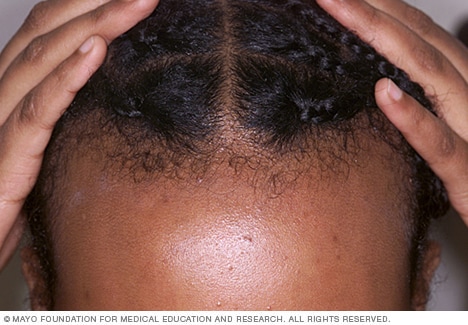
Hair loss is normally associated with older men, but it can affect anyone. Sometimes it’s related to the natural aging process, which is difficult in itself, but younger people can also struggle with hair loss.
In some cases, hair loss can be traumatic. Our hair is important to us, it’s a sign of youth and beauty, and losing it is difficult. It’s even more traumatic if it’s caused by a severe health condition. For example, many people undergoing cancer treatment will lose their hair, and while this may seem like a minor thing in comparison to the other complications of cancer, many people find it incredibly difficult to deal with.
Causes of Hair Loss
The first step to coping with hair loss is to find out why it’s happening. Male and female pattern baldness have specific signs. For example, men tend to lose their hair on the crown of their head and their hairlines will recede. Women lose their hair along their parting. Both will notice that their hair is thinning.
However, other causes of hair loss have different patterns. Your hair may fall out in clumps, or an even layer. Your hair might not fall out but break apart, which is a sign of hair damage. You may also lose hair on other parts of your body.
Some hair loss is temporary, so finding out what is causing it can be comforting. A doctor will also give you a treatment plan to prevent the issue from getting worse. Treating an underlying condition can also reduce or even reverse hair loss.
The Emotional Side of Hair Loss
Once you’ve tackled the physical causes of losing your hair, it’s time to look after your emotional wellbeing. No matter the cause, it’s helpful to talk to someone about how your hair loss is affecting you, whether it’s a friend or a trained therapist.
To start with, sometimes the hair loss can be caused by emotional distress in the first place. It’s common for people going through stressful situations to find that their hair is falling out. This can make an already bad situation feel worse. Often, the hair will restore itself afterward, so getting emotional help in the meantime can speed up this process.
Another way to help you to feel better about your hair loss is to consider a new hairstyle. Shorter hair can look better and some styles can even hide patches entirely. This is a temporary solution, but feeling more confident can do wonders.
Treating Hair Loss
If the hair loss is temporary, then it will recover once the cause is eliminated. Sadly, not all hair will restore itself. You can slow the progression of hair loss by looking after your hair, using products to improve hair health, and avoiding using harsh chemicals on it. Going to the best hair salon nearby and having them give you a nice cut with whatever hair you have to work with can also provide a boost.
It’s often best to consult a doctor about how you’re treating your hair loss, especially if you’re already following their treatment plan.
If you’ve managed to catch your hair loss early, then it is possible to use a hair loss shampoo treatment to restore your hair to its former glory. Some of these shampoo treatments can stop hair loss from getting worse, while others can even bring back thickness and luster to your hair. It partially depends on the treatment, and partially on the cause of your hair loss.
Another option is to go for an ARTAS hair transplant. This less invasive treatment can fill in bald spots with real hair, resulting in a natural and healthy look, making it ideal for most patients.
While there are several options you can choose from to treat hair loss or accelerate faster hair growth, it’s important to first speak with an expert, as indicated earlier. Beyond consulting your doctor about how you’re treating your hair loss, visiting a doctor is important because it helps to identify specific health issues that may be responsible for your hair loss. This way, you can treat any underlying health condition.


1 thought on “Post: Coping With the Trauma of Hair Loss”